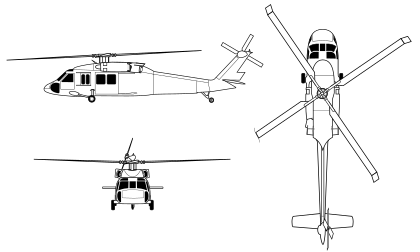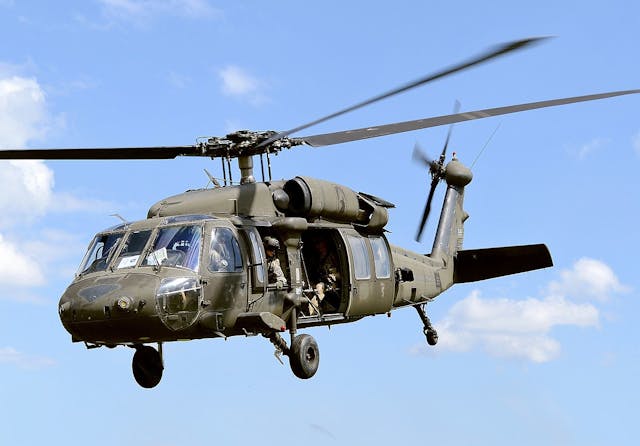UH 60 Helicopter Summary: Everything You Need to Know
UH 60 Helicopter Summary: Everything You Need to Know
Blog Article
The Impact of Lasting Practices on the Future of Airplane Procedures and Emissions Reduction
As the aviation sector deals with enhancing examination over its environmental impact, the adoption of lasting techniques arises as a critical path towards future airplane operations and discharges reduction. Developments in lasting aeronautics fuels and advancements in crossbreed propulsion technologies stand at the leading edge of this improvement, promising significant decreases in greenhouse gas emissions. The effective assimilation of these initiatives hinges on a variety of elements, consisting of regulatory structures and sector partnership. The question remains: how will these progressing practices improve the characteristics of flight and contribute to a more sustainable future?

Summary of Lasting Practices
Lasting practices in aircraft procedures encompass a series of approaches aimed at reducing ecological effect while keeping operational performance. These methods are vital in the aviation industry's commitment to lessening its carbon impact and adhering to international environmental standards. Trick efforts consist of optimizing flight paths to minimize gas intake, enhancing upkeep methods to make certain airplane run at peak performance, and executing advanced innovations such as winglets and light-weight materials that boost aerodynamics.

Involving and educating staff on sustainability techniques additionally play an important function, fostering a culture of ecological obligation within organizations. On the whole, the combination of these sustainable methods not just helps in reducing emissions yet additionally boosts the long-term feasibility of the aviation market, ensuring it meets the demands of both customers and regulatory bodies while adding to worldwide sustainability goals.
Ingenious Fuel Alternatives
Numerous ingenious fuel options are arising as essential options to decrease the air travel industry's reliance on typical fossil fuels. Among these choices, Sustainable Aviation Gas (SAFs) have actually gained significant attention because of their possible to reduce lifecycle greenhouse gas discharges by up to 80% compared to conventional jet gas. SAFs are stemmed from various feedstocks, consisting of waste oils, farming deposits, and even algae, making them a functional alternative for the market.
Another encouraging option is hydrogen gas, which, when utilized in gas cells, produces just water vapor as a by-product. Additionally, electrical propulsion systems are being explored, leveraging battery modern technology to power airplane.
Finally, biofuels originated from biomass are being checked out, providing a renewable choice that can be combined with standard gas. Jointly, these innovative gas options represent a vital step towards attaining a lasting air travel ecological community, lining up with international exhausts reduction targets and boosting the sector's environmental stewardship.
Technical Developments in Aviation

Just how can technological innovations improve the future of air travel? The assimilation of cutting-edge technologies is essential in transforming aircraft procedures, boosting effectiveness, and minimizing exhausts. Innovations such as hybrid and electrical propulsion systems are at the center, appealing substantial reductions in fuel consumption and greenhouse gas emissions. These systems utilize improvements in battery modern technology and power management, making it possible for aircraft to run with a lower ecological impact.
In addition, the execution of sophisticated products, such as light-weight compounds, adds to boosted aerodynamics and fuel efficiency. The usage of expert system and artificial intelligence in flight operations optimizes course planning and decreases gas melt by allowing real-time modifications based upon weather and website traffic conditions. Additionally, the development of autonomous and from another location piloted airplane systems stands to change cargo and passenger transportation, potentially enhancing efficiency while lessening human error.
In addition, lasting aviation modern technologies, including innovative air traffic management systems, can improve procedures and reduce congestion, bring about reduced discharges during trip. These innovations jointly represent a standard shift in aeronautics, assuring a future where sustainability and operational performance are linked, therefore sustaining the market's commitment to lowering its environmental influence.

Regulatory Structure and Conformity
Due to the expanding emphasis on ecological stewardship within the aviation industry, the regulative structure governing aircraft operations is progressing to advertise sustainable techniques. Regulative bodies, such as the International Civil Aviation Company (ICAO) and numerous national air travel authorities, are introducing rigorous guidelines intended at minimizing emissions and boosting functional efficiency.
These laws commonly consist of the fostering of Sustainable Air travel Gas (SAF), which has actually been identified as a crucial element in attaining reduced carbon footprints. Compliance with these laws requires airlines to apply advanced technologies and operational techniques, such as maximized flight courses and improved air traffic administration, to lessen fuel intake.
Furthermore, the enforcement of exhausts trading schemes and carbon offsetting campaigns is becoming progressively prevalent, engaging airlines to keep track of and report their discharges accurately. Non-compliance can cause substantial charges, hence pressing operators to prioritize sustainability in their service versions.
Inevitably, the evolving regulatory landscape not only drives technology and investment in eco-friendly modern technologies but likewise promotes a culture of responsibility within the air travel market. As these frameworks remain to develop, the concentrate on sustainable practices will be indispensable to accomplishing the sector's lasting ecological goals.
Future Trends in Aircraft Operations
As the air travel industry adapts to a progressively rigorous governing environment, future patterns in airplane procedures are set to concentrate on cutting-edge services that even more improve sustainability and effectiveness - uh 60. Secret advancements will likely consist of the fostering of sophisticated air website traffic monitoring systems, which use real-time data and fabricated knowledge to enhance trip paths, reducing gas intake and emissions
One more considerable fad is the boosted combination of sustainable aviation gas (SAFs) These alternatives to traditional jet fuel, acquired from sustainable resources, can dramatically lower lifecycle greenhouse gas discharges. The industry's dedication to SAFs will likely accelerate as airline companies work together with gas producers to guarantee schedule and cost-effectiveness.
Furthermore, the press in the direction of electrification and crossbreed look here propulsion systems is page acquiring momentum. Emerging airplane layouts will certainly include these technologies, providing quieter and a lot more efficient procedures, specifically for short-haul trips.
Conclusion
To conclude, the integration of lasting practices in airplane operations holds significant possibility for exhausts reduction and boosted performance. The fostering of sustainable aeronautics gas, coupled with advancements in hybrid and electric propulsion systems, is important for decreasing lifecycle greenhouse gas emissions. In addition, optimizing trip courses and accepting innovative technologies add to a quieter and extra eco-friendly air travel field. Collectively, these efforts line up with global sustainability goals and pave the means for a greener future in air travel.
Advancements in lasting air travel fuels and innovations in hybrid propulsion technologies stand at the center of this change, encouraging substantial decreases in greenhouse gas exhausts.Various innovative fuel options are emerging as critical services to minimize the air travel industry's reliance on conventional fossil gas - uh 60. Amongst these choices, Lasting Aeronautics Gas my link (SAFs) have actually gotten considerable interest due to their prospective to decrease lifecycle greenhouse gas emissions by up to 80% contrasted to conventional jet fuels.Another considerable fad is the raised integration of lasting air travel gas (SAFs) The fostering of lasting aeronautics gas, paired with improvements in electrical and hybrid propulsion systems, is vital for decreasing lifecycle greenhouse gas exhausts
Report this page